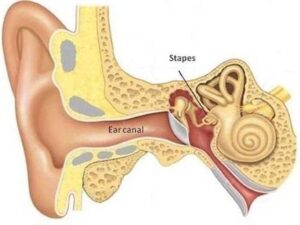Deafness, which is a decrease in the capacity to hear some or all sounds, may develop gradually over a period of months or years or suddenly over the course of a day or several hours. Either one or both ears could be affected. The majority of the time, infections or wax blockages that cause deafness may be cured.
AUDIT TESTS
Your doctor may recommend that you go to the hospital for specialized hearing tests such as audiometry and acoustic impedance testing if after examining you, they believe that your hearing is impaired.
Audiometry
Your capacity to hear sounds transmitted via the air is evaluated in the first section of this test. One ear at a time, you are instructed to use headphones to listen to various sound pitches. Each sound is played at an inaudible volume at first, and then it is gradually turned up until you can hear it. The second part of the exam measures your capacity to hear the identical noises sent via your skull’s bones. You wear a specialized headpiece for this exam, which frequently vibrates against your skull behind the ear. The findings of both assessments are recorded on an audiogram, which reveals precisely what kinds of sounds you have the most trouble hearing.
PREGNANCY AND DEAFNESS
You should always seek your doctor’s guidance if you have any hearing loss while pregnant. This is due to the fact that otosclerosis, a middle ear condition that causes progressive deafness, can occasionally manifest itself or worsen during pregnancy. The condition frequently runs in families.
STAPEDECTOMY
In severe cases of otosclerosis, the middle ear’s bones are operated on during a stapedectomy procedure. Usually, the procedure results in a noticeable improvement in hearing, but regrettably, in a tiny percentage of cases, it may cause total deafness in that ear.
The operation
One of the three tiny bones in the middle ear, the stirrup, which has been harmed by the disease, is removed during surgery and replaced with a metal or plastic alternative. This improves sound transmission across the middle ear.
A stapedectomy often requires a hospital stay of two to three days followed by another week or so of recuperation at home. After the surgery, you can experience some days of feeling dizzy.

